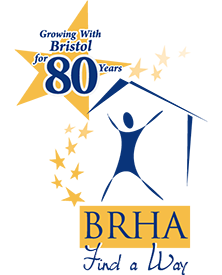The NAHRO Blog: Legislative & Policy Updates from Washington, DC
Affordable Housing and Community Development News You Need to Know
JULY 16, 2019 ~ ANDREW VAN HORN
In February, the Department of Housing and Urban Development (HUD) continued exploring how to increase participation in the Housing Choice Voucher (HCV) program with a paper by their Multidisciplinary Research Team titled “Landlord Participation Study.” The study found that the most common method for incentivizing landlord participation is increasing payment standards, though many of the methods described below are still relatively new. However, HUD believes that these landlord incentives may apply to rental housing markets across the country.
Conclusions about Rental Markets
The study was conducted in two parts: a quantitative analysis of administrative data and a qualitative set of interviews with nine innovative Public Housing Authorities (PHAs). The primary quantitative findings are as follows:
- vouchers per landlord increased from 2010 to 2016, from 2.6 to 3.1;
- the concentration of vouchers is increasing mainly in neighborhoods with higher rates of poverty, unemployment, and residents without high school degrees; and
- the change in voucher concentration is unequal across states.
The qualitative interviews confirmed that three common hypotheses about why landlords decline to participate in HCV programs are financial concerns, administrative burdens, and negative perceptions of voucher tenants. These interviews revealed several key points about rental markets:
- each PHA interviewed works in a competitive place to find housing;
- PHAs frequently have to increase payment standards, the amount that they pay to landlords to assist tenants with vouchers;
- tenants frequently need help with more than rent, such as searching for units and paying security deposits; and
- supply and demand for housing can become unbalanced due to other local housing factors.
Why Landlords Do Not Participate
Staff identified three primary concerns when asked about the most important reason why landlords do not participate in the HCV program: five PHAs answered with financial or profitability considerations, 3 named concerns about the bureaucratic and administrative process, and one cited negative attitudes about voucher holders. Specifically, PHAs mentioned anecdotes similar to the following:
- low payment standards sometimes made vouchers unprofitable for landlords;
- fair market rents (FMRs) can adjust slowly to increasing rents;
- money sometimes trumps the social mission to landlords;
- neither the hassle of dealing with a bureaucracy nor concerns that PHAs do not value landlords’ time exist in the free market; and
- stigmas about voucher-holders exist.
Incentives to Encourage Landlord Participation
Researchers asked staff from the nine PHAs selected for this study about what activities they have begun to overcome landlords’ concerns. First, in order to build confidence in the profitability of the HCV program, the most common approach has been increasing payment standards. Other frequent activities include:
- helping tenants pay security deposits or negotiating other arrangements regarding damages;
- offering bonuses to landlords for joining the program; and
- making it easier to complete administrative steps and communicate with the PHA.
Second, the most common strategies for simplifying the bureaucracy for landlords involve altering inspection requirements to make the process easier and implementing landlord portals to facilitate communication and conduct business quickly. Staff also mentioned creating ways for landlords to inform PHAs about tenant compliance and making other processes like payment electronic or automatic.
Finally, PHAs offer an array of strategies to change negative views of tenants, most of which are based on strengthening ties between landlords and tenants through communication. The most evidence-based activity for overcoming negative stereotypes is the District of Columbia Housing Authority’s “Meet-and-Lease event” model, in which PHAs bring landlords and tenants together to facilitate lease-ups. PHAs have also implemented regular landlord communications, dedicated communication positions, and information campaigns.
This summary has been a brief overview of the “Landlord Participation Study.” The full paper contains more detailed lists of anecdotes and analysis and can be found here.


